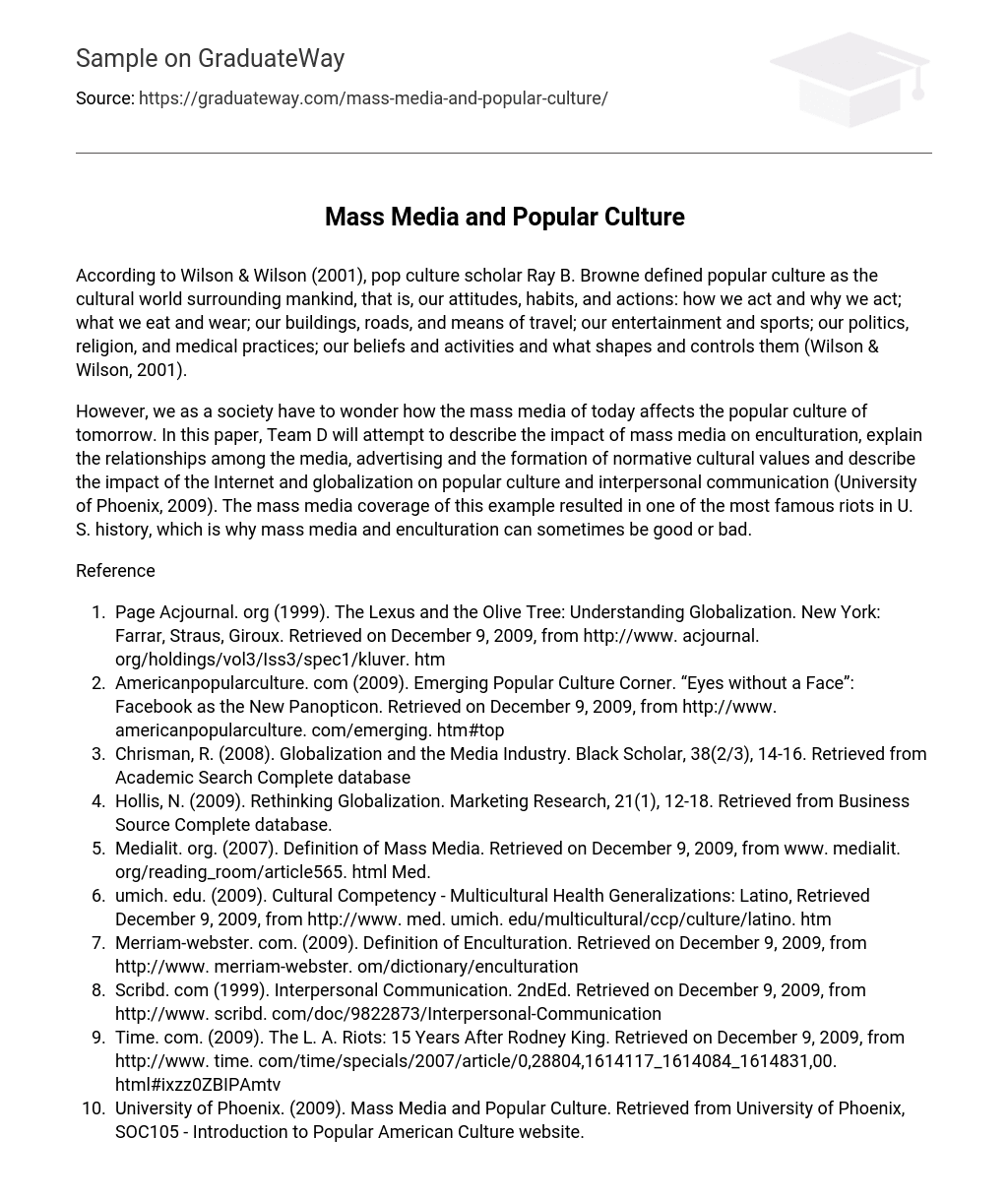According to Wilson & Wilson (2001), pop culture scholar Ray B. Browne defined popular culture as the cultural world surrounding mankind, that is, our attitudes, habits, and actions: how we act and why we act; what we eat and wear; our buildings, roads, and means of travel; our entertainment and sports; our politics, religion, and medical practices; our beliefs and activities and what shapes and controls them (Wilson & Wilson, 2001).
However, we as a society have to wonder how the mass media of today affects the popular culture of tomorrow. In this paper, Team D will attempt to describe the impact of mass media on enculturation, explain the relationships among the media, advertising and the formation of normative cultural values and describe the impact of the Internet and globalization on popular culture and interpersonal communication (University of Phoenix, 2009). The mass media coverage of this example resulted in one of the most famous riots in U. S. history, which is why mass media and enculturation can sometimes be good or bad.
Reference
- Page Acjournal. org (1999). The Lexus and the Olive Tree: Understanding Globalization. New York: Farrar, Straus, Giroux. Retrieved on December 9, 2009, from http://www. acjournal. org/holdings/vol3/Iss3/spec1/kluver. htm
- Americanpopularculture. com (2009). Emerging Popular Culture Corner. “Eyes without a Face”: Facebook as the New Panopticon. Retrieved on December 9, 2009, from http://www. americanpopularculture. com/emerging. htm#top
- Chrisman, R. (2008). Globalization and the Media Industry. Black Scholar, 38(2/3), 14-16. Retrieved from Academic Search Complete database
- Hollis, N. (2009). Rethinking Globalization. Marketing Research, 21(1), 12-18. Retrieved from Business Source Complete database.
- Medialit. org. (2007). Definition of Mass Media. Retrieved on December 9, 2009, from www. medialit. org/reading_room/article565. html Med.
- umich. edu. (2009). Cultural Competency – Multicultural Health Generalizations: Latino, Retrieved December 9, 2009, from http://www. med. umich. edu/multicultural/ccp/culture/latino. htm
- Merriam-webster. com. (2009). Definition of Enculturation. Retrieved on December 9, 2009, from http://www. merriam-webster. om/dictionary/enculturation
- Scribd. com (1999). Interpersonal Communication. 2ndEd. Retrieved on December 9, 2009, from http://www. scribd. com/doc/9822873/Interpersonal-Communication
- Time. com. (2009). The L. A. Riots: 15 Years After Rodney King. Retrieved on December 9, 2009, from http://www. time. com/time/specials/2007/article/0,28804,1614117_1614084_1614831,00. html#ixzz0ZBIPAmtv
- University of Phoenix. (2009). Mass Media and Popular Culture. Retrieved from University of Phoenix, SOC105 – Introduction to Popular American Culture website.





